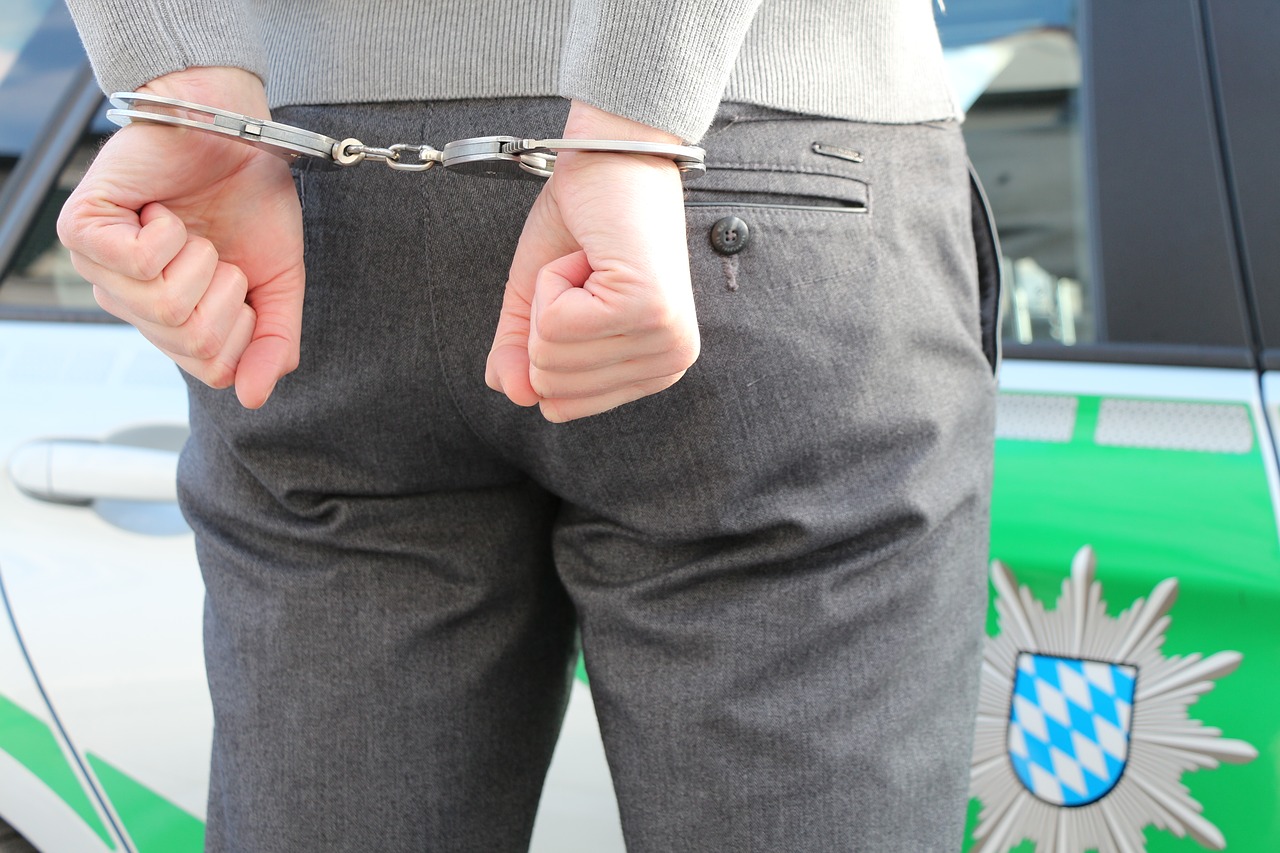Guy Stuff
What To Do If You’re In Trouble With The Police
Finding yourself in trouble with the police isn’t a situation many people want to find themselves in. Yet, in 2022, there were over 7 million arrests made in total, with drug abuse allegations making up a massive 80% of all arrests across the country.
But finding yourself on the wrong side of the law for the first time can be extremely nerve-wracking. If you don’t know what to do in this situation or what your rights or options are, it can be a really negative experience for you regardless of the reason why you found yourself arrested, detained, and questioned by police.
What Are Your Rights?
If you find yourself being stopped, questioned, or arrested by police, you have rights that you need to be aware of before things go any further. You do not have to answer any questions or speak; you have the right to remain silent at all times. Some states legally require you to tell the police your name and/or address or date of birth, but you don’t have to disclose any other information, including where you live, what you are doing, where you are traveling to, etc. You also do not have to disclose where you were born and do not have to consent to a search of your person or car. However, if an officer believes you have a weapon, they are legally allowed to pat you down.
You can also request a government-appointed lawyer should you not be able to afford one.
Now that you know your rights, it can be a good idea to know some other tips just in case you need to know them.
Keeping a business card of your lawyer or a lawyer who can help with your circumstances on you or in your car can come in handy should you need to retain legal counsel. Knowing who your local Bail Bonds person is and how they operate can be helpful in situations where you have been arrested and need to contact them to post bond before being freed from lockup. Know who you would call in this type of emergency to help you out, e.g., your spouse, who can then help you to get a lawyer, contact your place of employment to explain your absence, bring any medications you might need for health conditions, i.e., insulin if you’re a type 1 diabetes, etc.; you get 3 phone calls in the first 3 hours and always, always, always remain, polite and courteous.
The closer you are and the more rational you are, the easier it will be to remain respectful even if you don’t want to or you aren’t being treated the same way. This is more likely to go in your favor should you need to make a claim for false arrest for your rights being violated for any reason. Any poor behavior on your part will work against you and make any subsequent action more difficult.
What To Do If You’re In Trouble with The Police?
Stay Calm
In the first instance, as soon as the police approach you or you see a light signaling for you to pull over, don’t rush, being angry and aggressive. Instead, take a deep breath and aim to remain calm and in control at all times. Be clear about what you need to do and what is expected of you. Cooperate fully when asked anything, and remember you do not need to consent to anything you aren’t comfortable with, but you need to reiterate this confidently and clearly, so the officers know you do not give permission.
Ask if You Can Leave
Ask the officer if you are able to leave. If they say no, you have to stay, but if they don’t, you are allowed to leave. You are within your rights to ask why you need to stay if you have to, but if you are allowed to leave, do so calmly and quietly and do not make a scene or become confrontational.
Do Not Interfere or Obstruct the Police
This means you need to let them do what they need to do, even if you object to it. Being calm will go a long way, and not interfering with any actions they carry out will make things easier and safer for you, significantly if they’re escalated or you need to put in a complaint. You can state your object verbally in short, clear statements; however, it’s best not to interfere with what the police need to do or obstruct them in any way.
Ask For A Lawyer
If you end up being arrested or you need to go to the station to answer questions, always ask a lawyer. If you plan on remaining silent until you speak to a lawyer, then clearly tell the police officer your intent to remain silent after asking for a lawyer and then do so. If you have a lawyer you want to call, now is the time to tell them so you can call them, or you can ask to have a government-appointed lawyer if you cannot afford one, or you can use one of your phone calls to ask a loved one to get you a lawyer or contact .
Keep Your Hands in View
Everyone has seen the various videos circulating online and seen the major news stories of people being shot by police because the police thought they were about to be shot. Keeping your hands in view of the police officers at all times can help to remove the need for them to escalate an action or perceive you as a threat to them. Avoid putting your hands behind your back or in your pockets and keep them still where they can be seen at all times.
Be Careful with What You Say
Regardless of the situation and what has happened, be it you’re in an accident, involved in a crime, or other type of incident where the police are involved and you feel you might be a suspect, be very careful with what you say. Never disclose details on what has happened or anything else, as anything you say can be used against should things reach the court stage. The less you say, the better until you have legal counsel who can advise you further on your best course of action. Again, if you’re asked anything directly, inform the police that you will be involved in your right to remain silent, and then do so.
Ask Why You’re Arrested
If you find yourself being arrested, you have the right to ask and be informed of the reason why. The police should be informing you of your rights if you’re arrested and telling you the exact reason why, so you understand why you are being arrested. If you’re not being arrested, you are going to be free to leave, but if you are, then ask and do not resist arrest.
The Police Can’t Enter Your Home
Unless the police have a warrant signed by a judge, you do not have to give them entry to your home unless there are a few exceptions, for example, if they hear a person in trouble or evidence being destroyed. What this means is that if the police come to your home asking to talk to you in relation to an incident, you do not have to let them into your home to talk to them if you feel you might be implicated in anything or there is a chance you will be arrested. In the absence of the exceptions mentioned, simply tell the police you are refusing them entry into your home and talk to a lawyer for guidance.
If You Believe Your Rights Have Been Violated
If you have been arrested or come into contact with the police where you feel your rights have been violated, there are a few things you should do to keep your case moving forward.
Firstly, you need to write down as much information as you can remember, including times, dates, locations, officers’ names and badge numbers, and exactly what happened without embellishments or lying. Find any witnesses and identify if any recordings were made of the incident to help you back up your claims. Get the details of any witnesses and take any photographs or videos if you are able to.
From here, you can file a complaint against the agency in question; this can be done anonymously if you prefer. From here, it’s a case of waiting to see how it plays out. If you feel it’s necessary, contact a lawyer to help you follow the right channels and get the outcome you are looking for.
While not everyone starts their day thinking they’ll end up on the wrong side of the law. For many people, this is a genuine possibility each and every day for huge portions of the population. However, knowing what to do, especially if you’ve never been in trouble with the police, can help you make the best of the citations and get the help and support you need regardless of why you have encountered this situation.


















Recent Comments